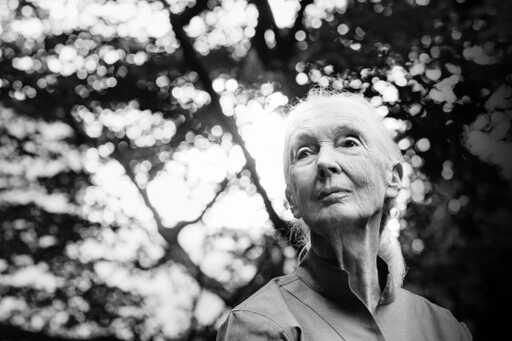Over the years, Mongabay staff and contributors have conducted numerous interviews with Jane Goodall. The following is a recap of her ideas and reflections, organized by theme. A list of the interviews and other pieces appears at the end. When Jane Goodall died on October 1st at the age of 91, the tributes were immediate and global. Presidents recalled her counsel, children spoke of her visits to their classrooms, and conservationists remembered how she made them feel less alone in the struggle to save wild places. For many, she was a scientist who revolutionized primatology. For others, an advocate who insisted on the dignity of animals. For still more, a cultural icon who embodied the possibility of grace in an age of crisis. But to those who knew her, she was also someone who could crouch to a child’s level, pull up a video of rats doing tricks on YouTube, and exclaim with delight, “Aren’t they marvelous?” That moment captures something essential: she never lost her capacity for wonder. Jane Goodall in 2024. Courtesy of the Jane Goodall Institute. Over more than six decades, Goodall carried a message that was consistent, clear, and insistent: humanity’s fate is bound to the fate of the natural world, and hope is not an indulgence but a duty. Her legacy cannot be reduced to one discovery or one campaign. She was a scientist who redefined animals, a thinker who refused the split between reason and reverence, a pragmatist who weighed tools and compromises, and…This article was originally published on Mongabay
From Conservation news via this RSS feed


